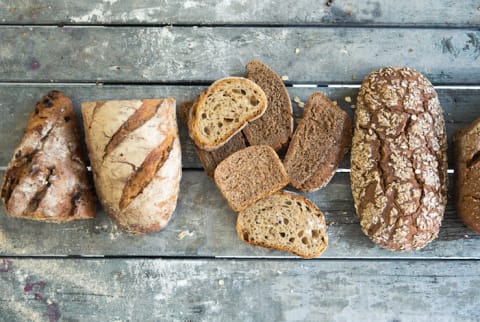Advertisement


Whether it's cutting out refined sugars and high-fructose corn syrup or loading up on probiotic foods, making the right changes to your diet can lead to both immediate and long-term improvements for your health.
But not all health food trends are as beneficial as they seem.
With the rising awareness of celiac disease—in which an individual has an immune reaction to eating gluten—many health-conscious individuals are also making the switch to a gluten-free diet. In fact, a 2013 study found that 30 percent of people surveyed reported a desire to cut back on gluten consumption. But only an estimated 1 percent of Americans actually have celiac disease, the primary cause of gluten sensitivity. This means that the other estimated 29 percent might not have a dietary or medical need to give up gluten at all. And in doing so, they are largely giving up whole grains, with all their benefits.
That's why, as a family medicine physician, I often tell my patients who haven't been diagnosed with celiac or another gluten intolerance to fully consider the decision before tossing out whole-grain bread. Take the time to consider what you could be missing out on:
1. Whole grains help to lower cholesterol.
Numerous research studies suggest that consuming a diet high in whole grains can lead to a moderate reduction in cholesterol. And reducing your cholesterol can help prevent the development of heart disease, one of the major causes of death.
2. Whole grains can reduce the risk of certain types of cancer.
The American Institute for Cancer Research touts the cancer-preventing benefits of whole grains. For one, whole grains help with weight control, and excessive weight is a risk factor for many types of cancer. Plus, recent research has shown that eating more fibrous foods, such as whole grains, is associated with a lower risk of breast cancer. Other studies have shown that whole grains are linked to a reduced risk of colorectal cancer. Whole grains also offer essential minerals that may protect against some cancers.
3. Whole grains can prevent constipation.
Of course, research also shows that those who eat plenty of whole grains are less likely to experience constipation, thanks to the heavy fiber content. This benefit allows you to avoid the gassy, bloated feeling that accompanies constipation and leads to discomfort. Digestive dysfunction can also lead to a host of medical issues, so avoiding it has long-lasting health benefits.
4. Whole grains promote weight loss.
Several studies indicate that eating a diet rich in whole grains can promote weight loss. Because foods high in fiber make you feel fuller longer, you naturally eat less.
Weight loss in and of itself can reduce your risk of suffering from an assortment of medical issues, including hypertension and diabetes.
5. Whole grains are vitamin-rich.
While you can get many vitamins and minerals from incorporating fruits and vegetables into your diet, whole grains provide a special assortment of key nutrients. Whole grains are rich in vitamins B and E, as well as magnesium and iron, among others.
And that’s not all.
For those of us who live on a budget, stocking your pantry with gluten-free foods can be a substantially larger financial investment than purchasing typical items. A study on this topic found that gluten-free foods were, on average, 242 percent more expensive than gluten-containing foods. For individuals with celiac disease, paying the extra-high price is well worth it. But for those without a sensitivity, buying traditional foods and whole grains is an easy way to stretch your buck—and reap many health benefits.
Related reads:
- 3 Whole Grains You Should Probably Eat More Often (With Recipes)
- Harvard Study Says Eating More Whole Grains Can Extend Your Life
- 5 Reasons Grains Aren't As Bad As Everyone Says